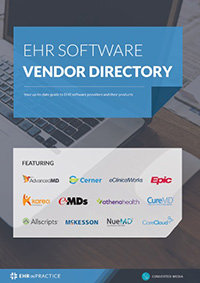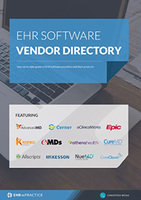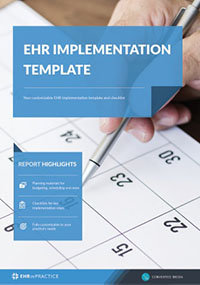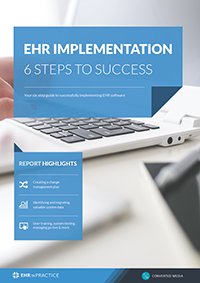How to tell it's time to call in an EHR consultant
With the growing sophistication of EHRs, the increasing demands for advanced EHR use on providers participating in the Meaningful Use program and the need to justify EHR costs with shrinking reimbursement rates, it is no surprise that practices seek out assistance in planning, implementing and using their EHRs. EHR consultants fill this demand by offering practices advice in selecting, designing, deploying and using an EHR. However, one should not just assume that hiring an EHR consultant should be done as a matter of course; rather, the decision to bring on an EHR consultant should be viewed as a strategic decision used to a solve a particular problem or improve a particular process.
EHR consultants offer significant value to practices which are in the course of selecting or implementing a system or want to optimize the use of an existing system. However, EHR consultants do not come cheap. The EHR Institute, a practitioner-sourced EHR, knowledge database, advises “Using a consultant is going to cost you about $100 to $250 per hour” adding that “some of the more established consulting firms will charge a flat rate for some services, such as reviewing the contract or offering advice.” Given the cost of EHR consultants, under what circumstances should a practice hire an EHR consultant?
1. You want to perform a thorough security risk assessment
The security threats presented in the current environment deem hiring an EHR consultant specializing in security as an investment in risk reduction in addition to a way to ensure compliance with healthcare data privacy laws, given the ever-present threats of healthcare data hacks and breaches and the costs practice can incur in the event a hack or breach occurs.
2. You want to make better use of your EHR data
Given the growing emphasis on value-based reimbursement and the focus on population health management, an EHR consultant can help practices leverage the massive amount of data they collect. EHR consultants can fill the gap for healthcare organizations who do not have a dedicated data analytics teams. Instead, a practice may elect to hire consultants to analyze their data or to train staff to conduct their analyses
3. You need help planning an EHR implementation
In light of the importance of implementation planning, practices will often consider hiring an EHR consultant to assist with the creation of an implementation plan. During implementation an EHR consultant can offer a number of services, including planning how to set up an EHR implementation so to optimize workflows, training staff on using the EHR, and data conversion from the previous system to the new system. A study conducted by Medical Economics indicates that under normal conditions implementation can result in a 50% loss in productivity. In this capacity smoothing out implementation can be a good way to minimize productivity loss during implementation.
Hiring an EHR consultant can provide for significant value to a practice, however the decision to hire a consultant should be considered strategically in light of attacking a particular problem or improving a process. Just as is the case in any other decision the investment in an EHR consultant should view in light of the expected return on their services.
Free white paper

EHR Vendor Directory
Get the most up-to-date directory of EHR software vendors. Find the best software for your practice.

Featured white papers
-

EHR Implementation Template
Get all the planning tools you need to make your EHR implementation a success
Download -

EHR implementation: 6 steps to success
Step-by-step information on how to implement EHR effectively
Download -

EHR Vendor Directory
Get the most up-to-date directory of EHR software vendors. Find the best software for your practice.
Download
Related articles
-

EHR Implementation Plan: Your 8-Step Checklist
Your comprehensive checklist for creating an EHR implementation plan.
-

A template for your EHR project implementation timeline
Determining your EHR project timeline will prove tricky, but having some expectations of time fra...
-

5 important areas of EHR training during implementation
Successful EHR implementation is not possible without crucial EHR training

